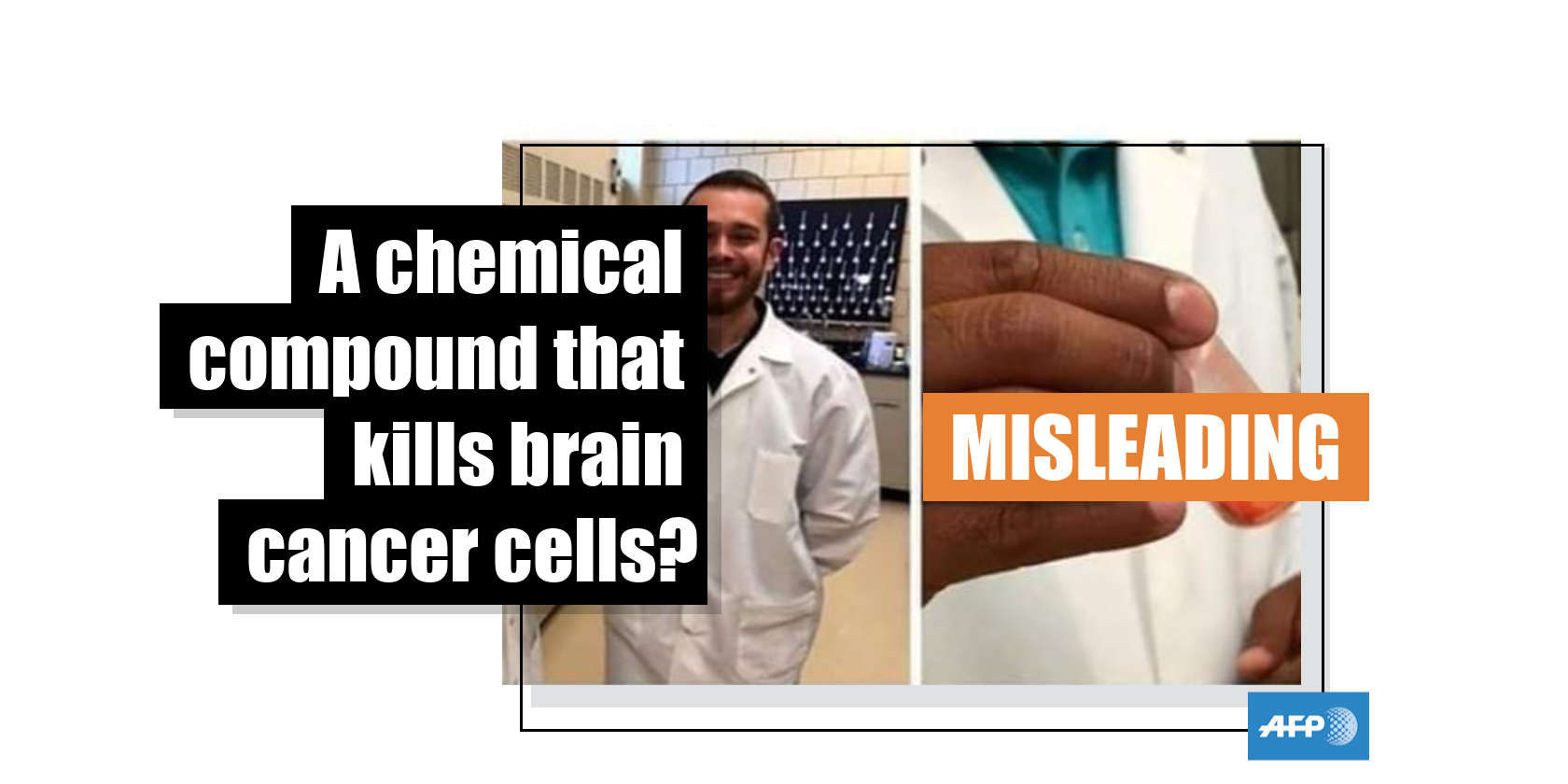
Treatment designed to kill brain cancer cells is still in development and nowhere near coming to market
- This article is more than six years old.
- Published on January 16, 2020 at 15:04
- 3 min read
- By AFP South Africa, Tendai DUBE
The tweet, which we’ve archived here, was posted by a reporter from WTOL 11, a television station based in Toledo, Ohio on August 15, 2019 and has been retweeted more than 213,000 times and garnered more than 413,000 likes.
It gives the impression that pharmacy students from the University of Findlay in Ohio, United States have developed a targeted treatment for glioblastoma, a highly aggressive cancer that originates in the brain.
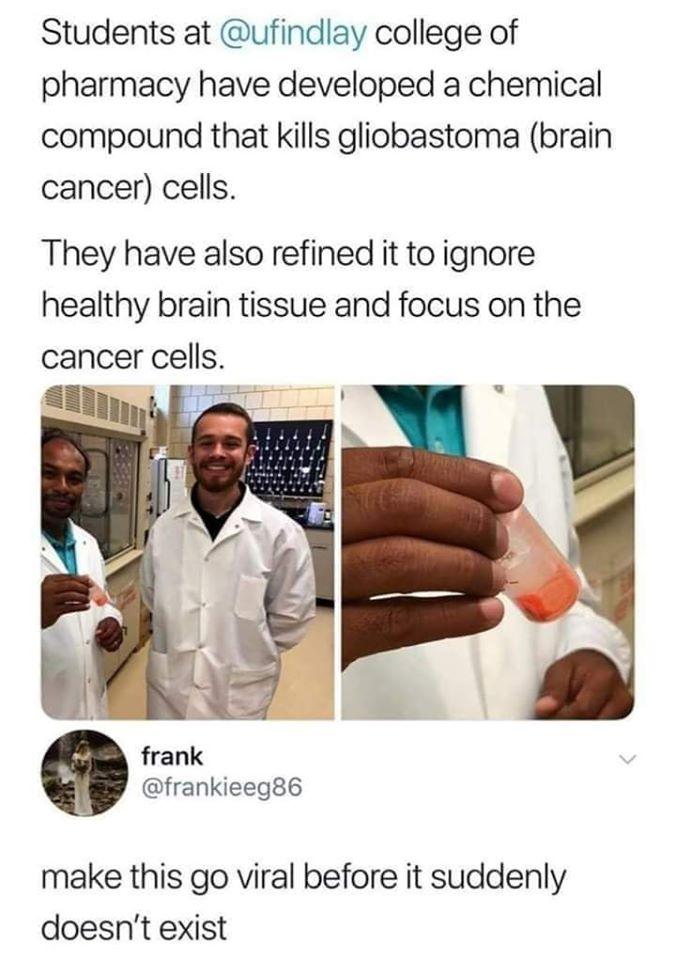
A popular reply to that tweet was retweeted more than 560,000 times and subsequently screenshot, edited and shared on other social media platforms, like this Facebook post where it has been shared 10,000 times.
The tweeted reply plays on the allegation that big pharmaceutical companies are suppressing a cure for cancer in the name of profits and for that reason Twitter users are encouraged to share the news widely.
David Chan, a medical doctor in California specialising in oncology and hematology, addresses the issue about "big pharma" in this Forbes article.
Ultimately, the claim about a cure for this particular cancer is misleading because the research into a possible treatment is still a long way off.
This statement published by Findlay University on August 12, 2019 and titled: Cancer Fighting Compounds: Pharmacy Students Developing New Drug, makes it clear that “the research is in its infancy; years worth of study remain to determine the drug’s efficacy”.
Similar caution was expressed by this Twitter user, self-described as an epidemiologist, in a thread posted online three days after the original tweet.
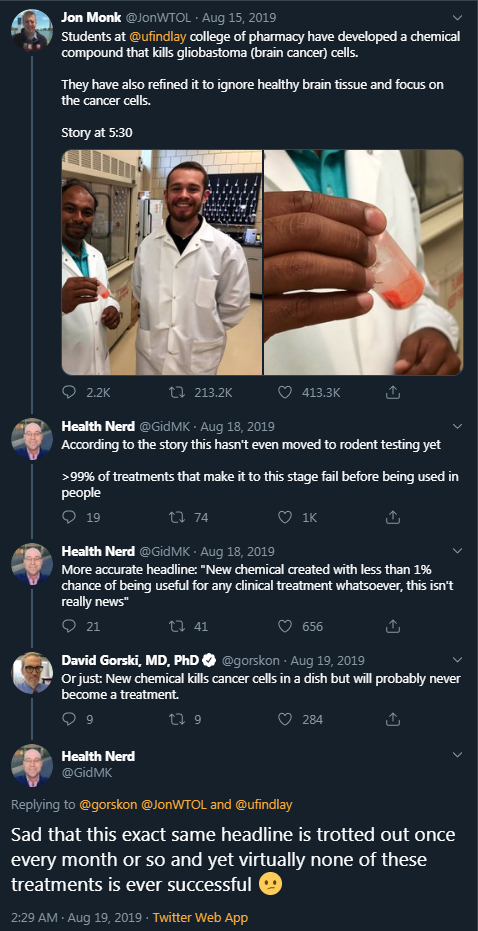
The university acknowledged that some of the publicity surrounding the news had gone too far in its claims and additional information regarding research progress was added in an editor’s note on August 19, 2019 to the original statement.

Amy DePuy, assistant director of marketing communication at Findlay University, told AFP in an email that they had had to be more specific about the research timeline to avoid people using the story out of context.
“We have a clarification in our newsroom because in some cases people have taken liberty with how they frame the story in their tweets,” said DePuy.
One of the researchers hoping to find a treatment is associate professor of pharmaceutical sciences, Rahul Khupse, pictured below left as seen in the tweet, and again, below right, in the university’s publicity material, this time with a group in what appears to be the same laboratory.
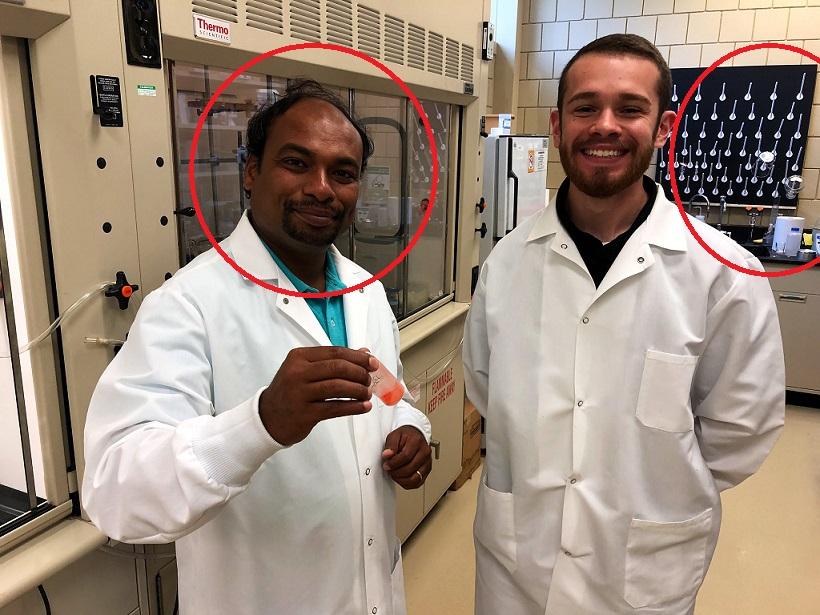
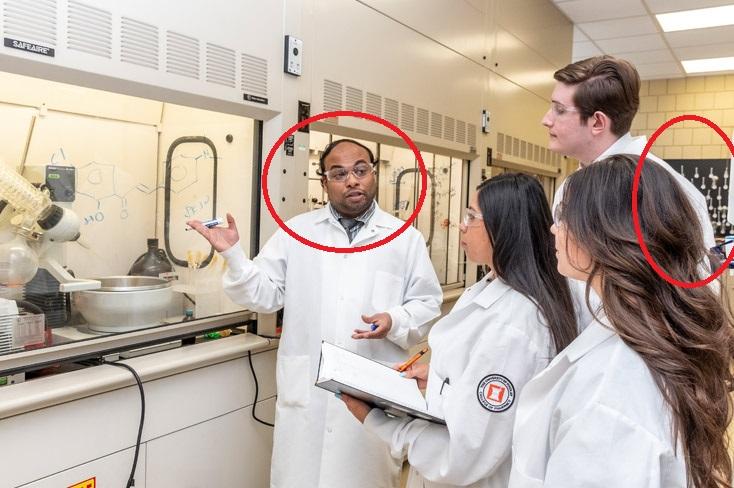
According to the university's statement, the work by Findlay pharmacy students is focused on developing an oral compound that targets the most aggressive form of cancer occurring in the brain.
Currently, medication has a hard time reaching certain parts of the brain due to a lining known as the blood-brain barrier (BBB), a tool the brain uses to protect itself from fluctuating plasma levels and pathogens that cause disease.
If the students find a compound that can breach the BBB, the idea is that medication can then be attached to it and potentially have a greater impact on targeting affected areas of the brain.
Copyright © AFP 2017-2026. Any commercial use of this content requires a subscription. Click here to find out more.
Is there content that you would like AFP to fact-check? Get in touch.
Contact us
